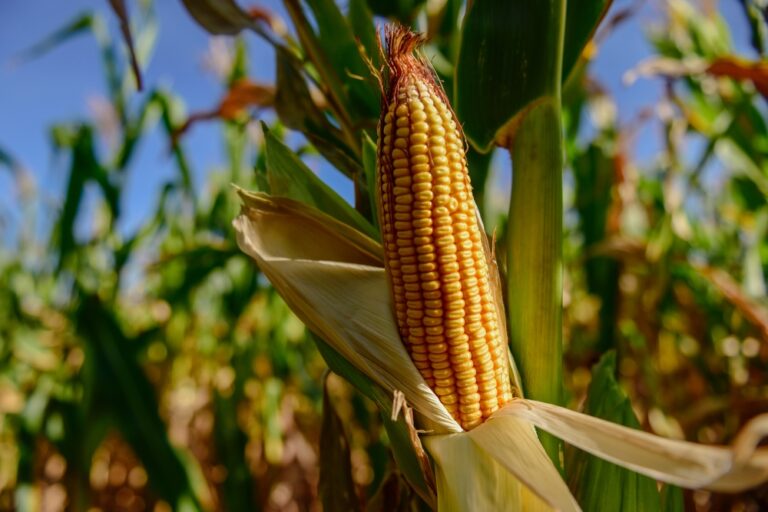What is Sustainable Farming?
Sustainable farming, often referred to as sustainable agriculture, is an approach to farming that seeks to produce food in a way that is environmentally friendly, economically viable, and socially responsible. It aims to maintain or improve the health of the land, water, and ecosystems while supporting the livelihoods of farmers and rural communities. Unlike conventional farming, which often prioritizes short-term yields and may rely heavily on synthetic chemicals and intensive practices, sustainable farming focuses on long-term productivity and ecological balance.
Key Principles of Sustainable Farming
- Environmental Stewardship
Sustainable farming prioritizes the health of the environment. This means using practices that minimize harm to ecosystems, conserve natural resources, and enhance biodiversity. - Economic Viability
Farmers need to make a living, and sustainable farming ensures that agricultural practices are economically feasible in the long term. This involves managing resources efficiently and adopting practices that reduce costs and increase profitability. - Social Responsibility
Sustainable farming supports the well-being of farm workers and local communities. This includes fair labor practices, community engagement, and ensuring access to healthy, locally grown food. - Biodiversity
Promoting a diverse range of crops and livestock helps create resilient ecosystems. Biodiversity supports soil health, pest management, and overall farm productivity.
Environmental Benefits of Sustainable Farming
- Soil Health and Conservation
One of the primary environmental benefits of sustainable farming is its focus on soil health. Practices such as crop rotation, cover cropping, and reduced tillage help to maintain soil structure, enhance fertility, and prevent erosion. By improving soil health, sustainable farming supports greater water retention and reduces the need for synthetic fertilizers, which can lead to runoff and water pollution. - Water Conservation
Sustainable farming promotes efficient water use through methods like drip irrigation, rainwater harvesting, and soil moisture management. These practices reduce water wastage and help conserve this vital resource. Additionally, sustainable farming avoids practices that contribute to water contamination, such as excessive pesticide use and improper manure management. - Reduction in Greenhouse Gas Emissions
Sustainable farming techniques contribute to the reduction of greenhouse gas emissions. For example, practices like agroforestry and maintaining permanent vegetation help sequester carbon dioxide from the atmosphere. By minimizing the use of fossil fuels and synthetic inputs, sustainable farming also lowers emissions associated with agricultural production. - Enhanced Biodiversity
By incorporating diverse crops and integrating livestock, sustainable farming practices enhance biodiversity on the farm. This diversity supports a balanced ecosystem where beneficial insects, pollinators, and soil microorganisms thrive. Increased biodiversity contributes to better pest control, reduced disease incidence, and overall farm resilience. - Waste Reduction
Sustainable farming emphasizes the efficient use of resources and reduction of waste. Techniques such as composting organic matter and recycling agricultural by-products help close nutrient loops and reduce the need for external inputs. This approach minimizes the environmental impact associated with waste disposal and enhances the sustainability of farming operations. - Ecosystem Services
Sustainable farming practices support various ecosystem services that benefit the environment. For example, maintaining natural habitats, such as wetlands and riparian zones, provides essential services like water filtration, flood regulation, and wildlife habitat. By preserving these ecosystem services, sustainable farming contributes to the overall health and functioning of natural systems.
How to Support Sustainable Farming
Consumers can play a significant role in supporting sustainable farming by making informed choices:
- Choose Sustainable Products: Look for products with certifications like organic, Fair Trade, or Rainforest Alliance that indicate sustainable practices.
- Support Local Farmers: Buy from local farmers’ markets or community-supported agriculture (CSA) programs to support sustainable practices and reduce food miles.
- Reduce Food Waste: Plan meals and store food properly to minimize waste, which helps reduce the environmental impact of food production.
- Advocate for Change: Support policies and initiatives that promote sustainable farming practices and environmental conservation.
Conclusion
Sustainable farming represents a vital shift towards more responsible and environmentally friendly agricultural practices. By focusing on soil health, water conservation, greenhouse gas reduction, and biodiversity, sustainable farming offers numerous environmental benefits that help address global challenges. As consumers and stakeholders, we can support this movement by making mindful choices and advocating for practices that protect our planet while ensuring a stable and productive food system for future generations.





